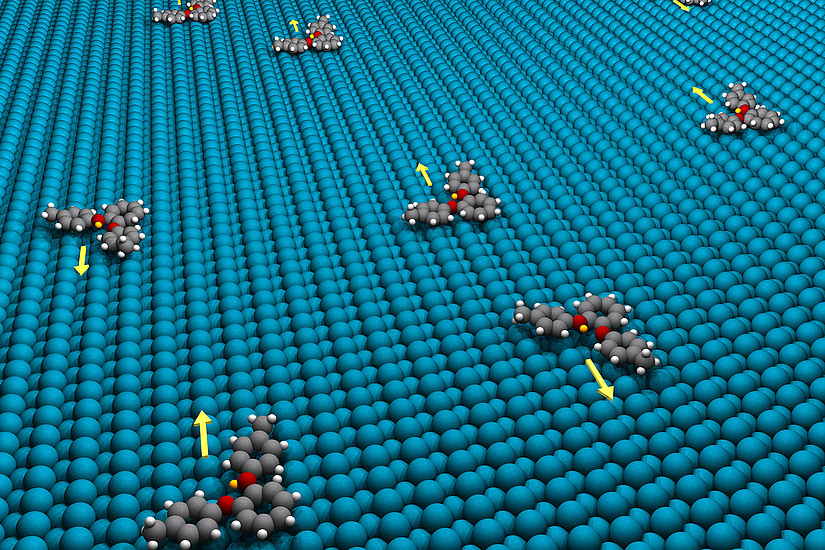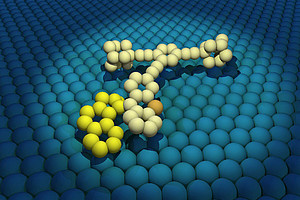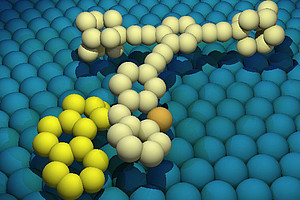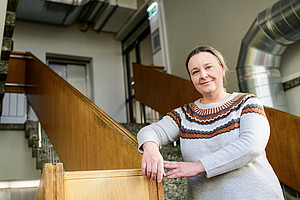"In order for molecules to move in a desired direction on a surface, they actually have to be steered by pushing and pulling with the atomically sharp tip of a scanning tunnelling microscope," Grill describes the starting point for the new development. "Normally, after all, objects on the atomic scale always move in a statistically distributed manner in several directions, for example back and forth." The next generation now "drives" to the destination with one hundred percent efficiency on the given path as soon as it is excited.
The road makes the car
The new molecular machines do not contain a motor unit. Instead, the propelling function is achieved by combining the molecules with a surface. Accordingly, the molecules have a very simple chemical structure and therefore do not require complex synthesis methods. The atomic structure of the "road surface" plays an important role. "This was revealed by the calculations from a cooperation partner at the University of Liverpool," adds Grill.
The scientists also proved that these nano-machines can do real work by transporting individual carbon monoxide molecules as "cargo" from one place on the surface to another, always with perfect uni-directionally. Both properties open up completely new application possibilities.
For years, Leonhard Grill and his team from the Department of Chemistry at the University of Graz have been researching molecular motors that can convert external energy into directional motion. The long-term goal is to develop nano-machines for a wide range of technological areas. Grill has already received a 2.5 million euros ERC Advanced Grant for his project "Adsorbate Motors: Tricking Microscopic Reversibility on Surfaces".
Publication:
G. J. Simpson, M. Persson, L. Grill
„Adsorbate motors for uni-directional translation and transport “
Nature, DOI: 10.1038/s41586-023-06384-y (2023)
Details on the research group:www.nanograz.com





